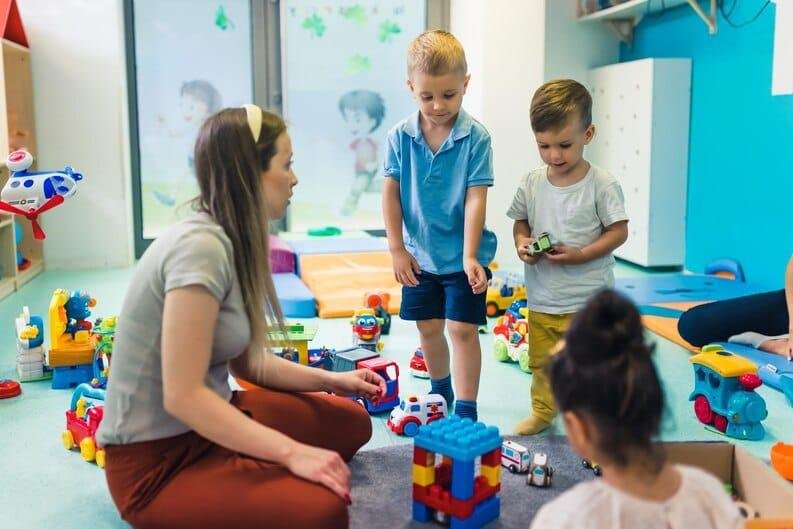As a leading ABA therapy service provider in Canada, Advance Therapy delivers expert support to children in a variety of settings. Our comprehensive services help children develop essential skills, enhance independence, and build confidence in a structured, supportive environment. From skill-building and communication to social interactions and behavioral support, we provide personalized ABA therapy programs designed to meet each child’s unique needs—empowering them to thrive at home, school, and in the community.

The earlier ABA therapy begins, the more effective it can be. Advance Therapy specializes in early intervention programs that lay the foundation for lifelong skills.
Families can choose between therapy in their own homes or structured sessions in Advance Therapy’s Toronto location. Both options promote skill development in everyday routines.
Advance Therapy knows that parents play the biggest role in their child’s growth. Their parent training ensures families feel confident continuing strategies at home.
From toddlers to teens, Advance Therapy designs programs that address communication, academics, social play, self-regulation, and independence.


Builds critical skills—communication, social interaction, self-regulation, daily living adtherapy.ca
Uses evidence-based methods like discrete trial training (DTT), prompting, reinforcement, and continuous data collection to track progress and adapt strategies adtherapy.ca.
Benefits extend beyond ASD to children with ADHD, developmental delays, and similar challenges
Toronto is a diverse city, and every child has unique needs. Families here choose ABA therapy because it is:
Personalized – Goals are tailored to each child’s strengths and challenges.
Flexible – Sessions can happen at home, in daycare, or in a center.
Evidence-Driven – Every plan is based on data and adjusted as the child grows.
Collaborative – Parents, therapists, and educators work as a team.
Start early if possible—early intervention leads to stronger outcomes.
Be consistent—apply strategies at home and in the community.
Collaborate with your therapist—share observations and celebrate progress.
Stay patient—progress takes time, but every step counts.
Parents often share that even the smallest improvements—like a child asking for their favorite snack, joining in play, or sitting through circle time—make a huge difference at home and school. These milestones add up to greater confidence and independence for the child, and peace of mind for parents
Evidence-based therapies such as Applied Behavior Analysis (ABA), speech therapy, and occupational therapy are highly effective in supporting children with autism. These therapies are tailored to each child’s unique needs and focus on improving communication, social skills, behavior, and daily living abilities, fostering greater independence and developmental progress. By using proven strategies, therapists can break down complex skills into manageable steps, reinforce positive behaviors, and build confidence in everyday tasks. With consistent practice, collaboration with families, and individualized goals, these therapies create lasting improvements that empower children to thrive at home, in school, and within their communities.
es — Advance Therapy supports teenagers and adults in areas like life skills, social engagement, and self-management. Programs are tailored to each individual’s unique strengths and goals, focusing on improving independence, confidence, and daily functioning. Whether it’s preparing for employment, enhancing communication, or learning strategies to manage behaviors, therapy provides practical tools that foster long-term success. With compassionate guidance and consistent support, teenagers and adults can continue to develop meaningful skills that enrich their personal lives, strengthen relationships, and promote greater participation in their communities.


Schedule your appointment now and start building the life you deserve.